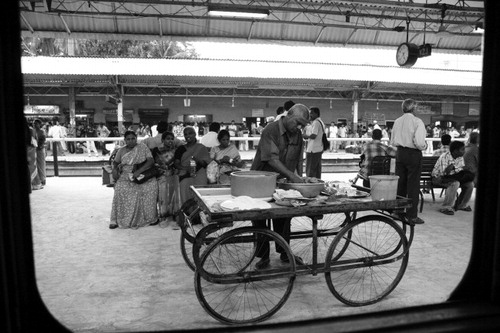According to a study by the International Agency for Research on Cancer, there will be approximately 250,000 new cases of breast cancer in India by 2015. At present, India reports around 100,000 new cases annually.Citation1 Breast cancer will become an epidemic in India in another 10 years, if the country does not put in place vigorous mechanisms for early detection and awareness-building, says Umberto Veronesi, the father of modern breast cancer surgery. Even two generations ago, India was not a high incidence zone because Indian women married early and nursed two to three children each on average. “But now, women in India are emulating the West, marrying late, and the average child-bearing age has increased to 30 and sometimes even beyond that. If a woman has her first child at 16, it reduces the risk of breast cancer,” according to Veronesi.Citation2
As adults, women in India get less health care than men, they tend to be less likely to admit that they are sick and they will wait until their sickness has progressed before they seek help or help is sought for them. Studies on attendance at rural primary health centers reveal that more males than females are treated in almost all parts of the country, with differences greater in northern hospitals than southern ones, pointing to regional differences in the value placed on women.Citation3 Women’s socialisation to tolerate suffering and their reluctance to be examined by male personnel are additional constraints in their getting adequate health care.
India, with a population of 989 million, is the world’s second most populous country. Of that number, 120 million are women who live in poverty. Over 70% of India’s population currently derive their livelihood from land resources, including 84% of economically active women.Citation4
The number of specialised cancer hospitals in India is very low compared to western countries. Mammogram and related equipment are available in major metropolitan cities only, while rural and semi-urban women are deprived of such facilities. The annual average income of Indian women is nearly Rs.11,500 (US$285),Citation5 yet, the expenditure incurred for doctor’s consultation, mammogram and Fine Needle Aspiration Cytology test is nearly US $50, which is not affordable for the average Indian women.
An estimated 200 million women are illiterate and even most educated women are unaware of the symptoms of breast cancer; many shy away from doctors, fearing social embarrassment. In millions of villages and small towns across India, women with breast cancer are looked down upon by their spouses, families and friends.Citation6
The average age of the high risk group in India is 40–46 years unlike in the West where women aged 52–56 years are more prone to breast cancer. According to studies, less than 3% of women come for regular breast cancer screening in India.Citation7 As early detection gives the best chance of survival, there is a crying need to make international breast cancer organisations and health activists aware of the plight of Indian women who are unable to avail breast cancer education and the screening and treatment facilities that can reduce the gravity of breast cancer.
The Vani Foundation for Breast Cancer is a registered, non-profit, non-governmental voluntary organisation in the state of Andhra Pradesh, India, founded in 2007 and supported by donations from friends and a faith-based organisation. It has a dedicated team to educate women about breast cancer and does advocacy and prevention work. The foundation has conducted 20 awareness camps in five districts of Andhra Pradesh in the past 12 months for women from all walks of life, has helped 10–15 under-privileged women access free mammograms each month, and provides financial assistance for women diagnosed with breast cancer to purchase medicines (see <www.vani4breastcancer.org>).
References
- Maya C. Breast cancer and diet regime. The Hindu. Thiruvanathapuram, February 2007.
- Breast cancer will become epidemic in India. Indo Asian News, Life Style, NewDelhi, April 2008.
- RaniPaul A. Status of women. EURAC research, Bozen/Bolzano, Italy, November 2006.
- D Rambabu. Indian women: are they better off?. Journal of Center for Promoting Excellence in Management, Srikakaulam. 2004
- S Mukhopadhyay. Women’s Work in South Asia: A Situational Analysis and Policy Concerns. 2004; International Labour Organization: New Delhi.
- Ratna Prabhakar J. Pink month in Andhra Pradesh. Andhra Bhoomi. Tadepalligudem, 3 October 2007.
- M Chatterjee. Oncology pioneer. Bihar Times. New Delhi. 1 April. 2008
